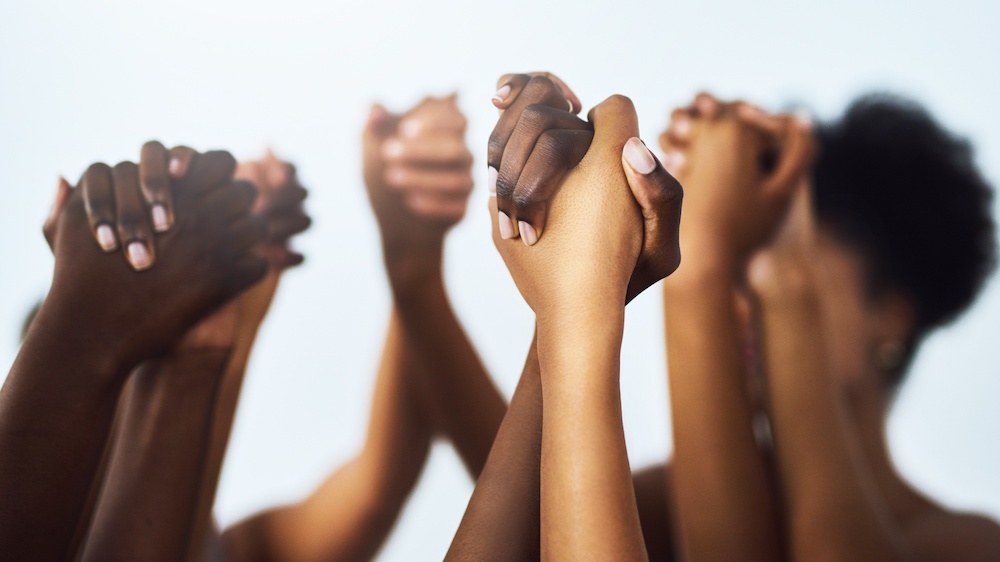If you’re interested in sharing your opinion on any cultural, political or personal topic, create an account here and check out our how-to post to learn more.
____
Certainly, the events of 2020 are unlike anything we’ve ever experienced. In the midst of a pandemic, a series of unjust and unimaginable deaths of African Americans were recorded and revealed to the world via videos on eyewitnesses’ cell phones. The prevalence of systemic racism in our country pervades more now than ever. The veil has been lifted. For the first time, some people are realizing a reality they didn’t know or want to acknowledge existed — that African Americans in this country are treated as second-class citizens, even in the “Land of the Free.”
While I have found myself occasionally bogged down by fear, frustration and hopelessness, I have also used this time to reflect on ways I can create, channel and spur real change. As an African-American genetic counselor and scientist, I mourn the incessant attacks against people who look like me year after year. As I turn inward to counter outward pressures, I am empowered to create and sustain a legacy that fosters equity and inclusion of visible and invisible diversity, both for those working in the field as well as the patients and communities we assist daily.
I Am Honored to Pay It Forward
I realize now more than ever that the benefits of growing up African American in this world balanced with a supportive home environment prepared me to feel empowered as a champion and advocate in my profession. I take seriously the responsibility of using my experience to create space and opportunities to bring more diversity to the genetic counseling field. This duty also extends to helping more minority patients and communities recognize the value of genetic counseling.
Growing up in rural Tennessee, I eagerly anticipated summer visits from my lively and humorous aunts and uncles who lived in Washington, D.C. and Illinois. They reminisced about our elders, shared elaborate stories about their childhood and sometimes revealed frightening details about experiences that motivated them to move north. As an adult, I realize the days I spent with my family griots primed me to build rapport with patients by listening to them tell their respective stories within the context of their health.
My patients remind me how important my own story is. And as I help them reevaluate their identity based on genetic testing results, they also affirm mine. Five years ago, I saw my first patient — an elderly Black woman with a history of breast cancer.
When our time was up, I handed her my business card. Glowing, she looked up from my card and warmly said, “You have your Ph.D.!” I replied, “Yes. I graduated from Howard University with a Ph.D. in genetics and a specialization in genetic counseling.”
My patient proceeded to address me as “Dr. Ewing.” I stammered to explain that I wasn’t quite comfortable owning that title yet, nor did I feel it was appropriate for me to use in a clinical setting. My patient sternly, but compassionately, interrupted me saying, “I do not care how comfortable you are with a title. You earned your degree and your family sacrificed for you to accomplish such an achievement.”
In that moment, my apprehension faded with my patient’s affirmation of my identity and recognition of the sacrifices that came with that Ph.D. She helped me understand not only that I should be proud of my position but also recognize that it is my responsibility as an African-American genetic counselor and scientist to pay it forward — not only as a role model for other members of the Black community, but also, as an advocate for equitable access to quality healthcare.
In my commitment to do just that, I am motivated by Dr. King’s inspiring words: “Of all the forms of inequality, injustice in healthcare is the most shocking and inhumane.”
As an African-American genetic counselor and scientist, everything I do is an attempt to pave the way for future minority genetic counselors to join the ranks in this profession. I hope more diversity in this field will not only ensure that African-American patients can see a provider that looks like them, but that the healthcare system will prove itself worthy enough to help all patients see the value in genetic counseling, especially for those with a family history of disease.
If you’d like to find a genetic counselor in your area, visit www.findageneticcounselor.com
____
Altovise Ewing, PhD, LCGC, is a clinician-scientist with 13-plus years of genetic counseling and health disparities research experience.
